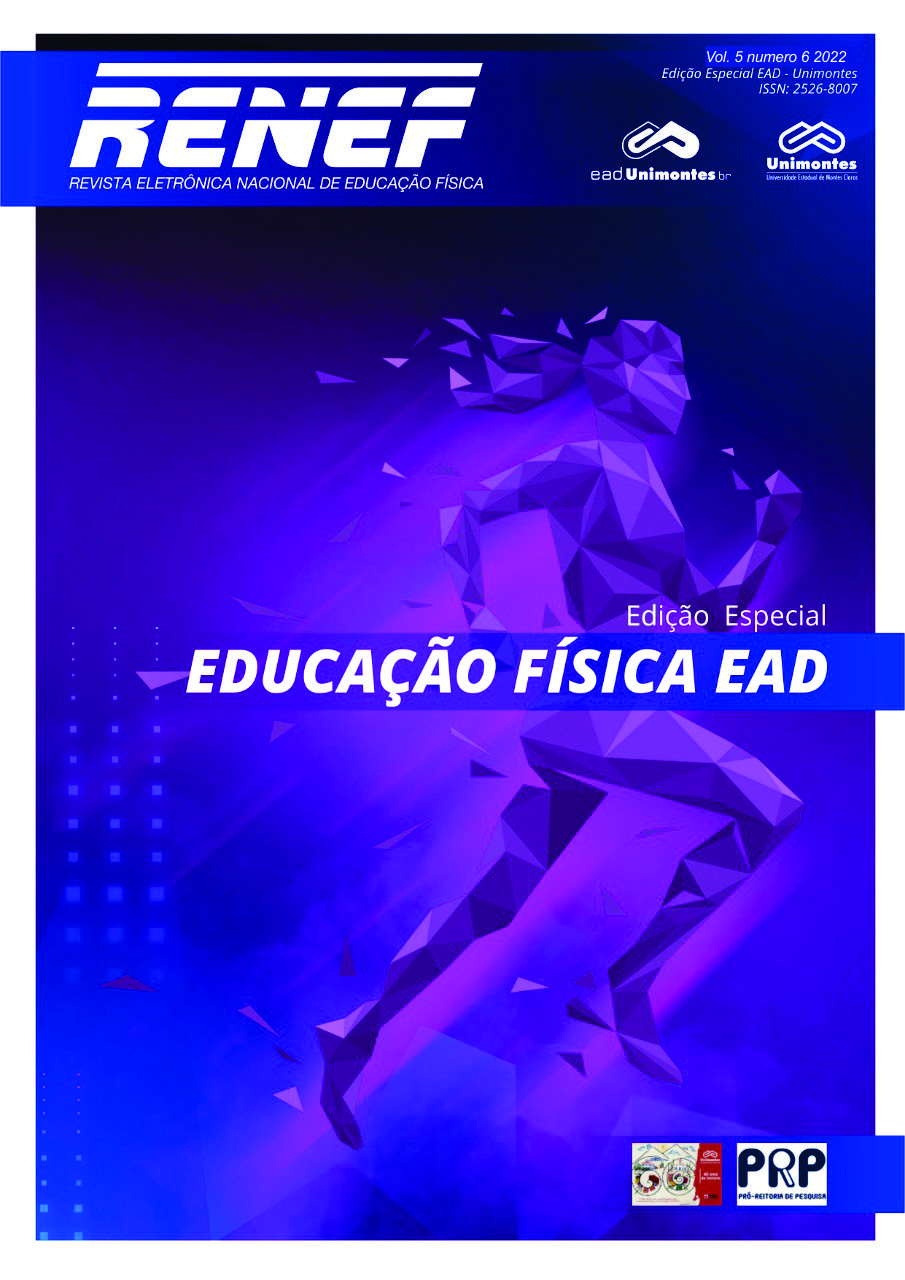PERFIL PSICOMOTOR DOS ALUNOS DA ESCOLA ESTADUAL RODRIGUES ALVES
Keywords:
Psicomotricidade. Perfil psicomotor. Distúrbios psicomotores.Abstract
School Physical Education in Brazil has undergone several changes since its inception, and currently, influences from psychopedagogy, which brought a new working ideology and a new meaning to the presence of Physical Education at school: psychomotor development. The psychomotor approach allows the understanding of how the child becomes aware of his body and the possibilities of expressing himself through it. Therefore, this research aims to identify the psychomotor profile and possible psychomotor disorders in elementary school children, comparing female and male psychomotor profiles. This research project is justified by the need for psychomotricity to be present in children's lives because it corrects several psychomotor disorders that are found in Physical Education classes, where students spend most of their time in front of the computer, cell phone, video game, bringing possible psychomotor disorders. Research subjects are students of Elementary School I of the Rodrigues Alves State School in the city of Monte Azul - MG. Therefore, the importance of applying the psychomotor battery in children inserted in the school environment is noted, as this assessment tool can early detect any delay in the child's psychomotor development, facilitating early intervention in possible psychomotor disorders and adaptation in the form of the teaching-learning in childhood.
Downloads
References
ALMEIDA, C. M.D. Perfil Psicomotor De Alunos Com Idade Entre 7 A 9 Anos. 2009
BARRETO, S. J. Psicomotricidade, educação e reeducação. 2. ed. Blumenau: Livraria Acadêmica, 2000.
BRASIL. Secretaria de Educação Fundamental. Parâmetros curriculares
CAVALCANTI, I. P. F.; ANJOS, C. C.; RODRIGUES, J. E.; ZIMPEL, S. A. Perfil psicomotor das crianças assistidas pelo projeto crescer. – EARE [internet]. 2019, 1(1):1-17. Disponível em: DOI: https://doi.org/
COSTE, J. C. A psicomotricidade. 4. ed. Rio de Janeiro: Guanabara Koogan, 1989.
FERREIRA TL et al. Avaliação psicomotora de escolares do 1º ano do ensino fundamental. Rev. Psicopedagogia 2010; 27(83): 223-35
FERREIRA, T. L.; MARTINEZ, A. B.; CIASCA, S. M. Avaliação psicomotora de escolares do 1º ano do ensino fundamental. Revista Psicopedagogia, São Paulo, v. 27, n. 83, p. 223-235, 2010.
FONSECA, V. Educação Especial: programa de estimulação precoce - uma introdução às ideias de Feuerstein. 2ª ed. rev. aum. Porto Alegre: Artes Médicas. 1995, p. 26-27.
FONSECA, V. Manual de Observação psicomotora: Significação psiconeurológica dos fatores psicomotores. Porto Alegre: Artes Médicas. 1995.
MORAIS, V.L. “Desenvolvimento Psicomotor”. 2002. Disponível em: http://www.uniesc.com.br/esp/etext/psicomotricidade%20e%20educ%20fisica.doc.
PCN`s: Educação Física/Secretaria de Educação Fundamental. Brasília: MEC/SEF, 1998.
OLIVEIRA, Gislene de Campos. Psicomotricidade: Educação e Reeducação num enfoque Psicopedagógico. 5. ed. Petrópolis: Editora Vozes, 2001.
SILVA, A. B.; BORGES, P. F. B. A Importância da Psicomotricidade na Educação infantil. Revista de Pedagogia Perspectivas em Educação, n.3, ano 1, p. 1-20, ago. 2008.
SILVEIRA, C. R. et al. Avaliação motora de pré-escolares: relação entre idade motora e idade cronológica. Ver Digital. Buenos Aires. 2005:83
SILVÉRIO, J. C.; CUNHA, N. B. Avaliação psicomotora de crianças do 2º ano do Ensino Fundamental I, Semina: Ciências Sociais e Humanas, Londrina, v. 37, n. 1, p. 77-92, jan./jun. 2016.
Published
Versions
- 2022-07-29 (2)
- 2022-07-29 (1)


















